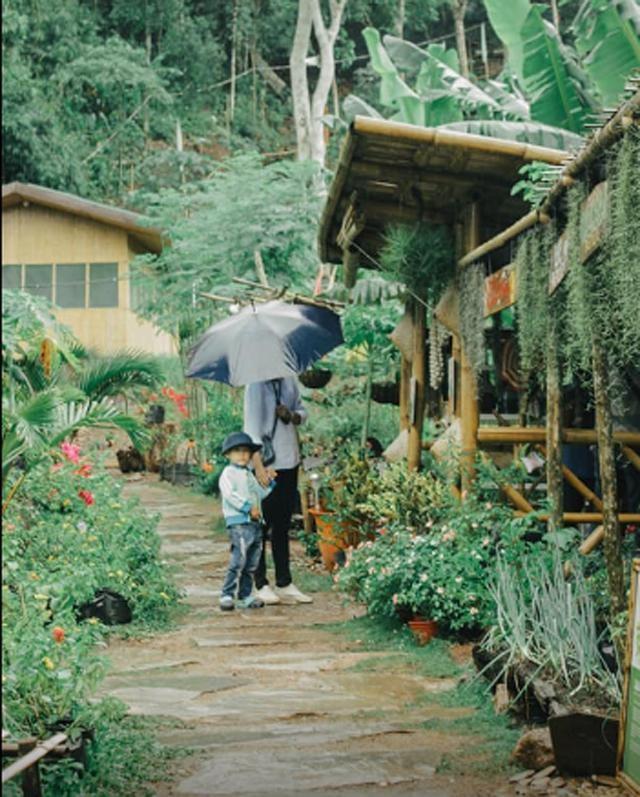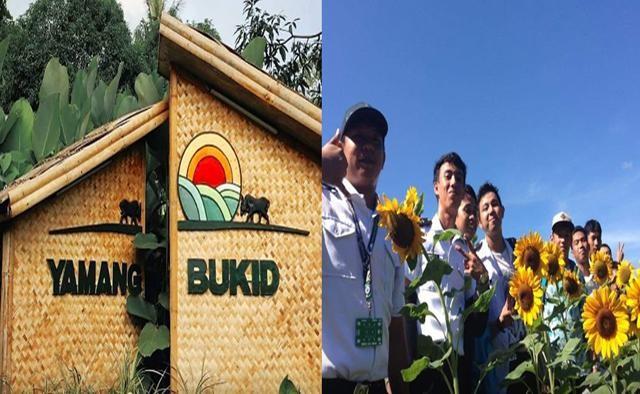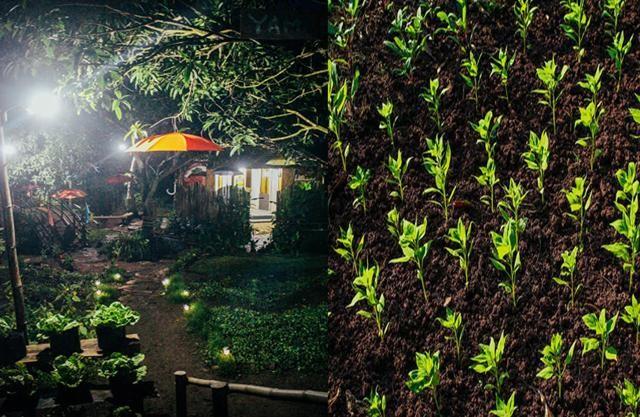Palawan farm turns into habitat for endemic species unintentionally

The Yamang Bukid farm in Puerto Princesa City, Palawan was intended to be a turmeric plantation, but due to the evolving needs of the local farmers and the community of Barangay Bacungan, it has evolved into a place for relaxation and a habitat to wild, endemic species of animals and insects in the area.
Driven by a strong motivation of "doing business with a heart" for community development and for the environment, Baguio City-based Yamang Bukid Healthy Products, Inc. had sought to reach out to all major cities in the country to allow the firm to grow and to help more and more people to make a living.
This desire carried Yamang Bukid (YB) to Palawan, with its first outlets in Puerto Princesa City malls. And as it branched out to other super markets, it needed raw materials for its main product Turmeric 10-in-1 Tea and thought of setting up a farm solely dedicated to turmeric.

After it acquired a 1.2-hectare tract of unproductive land in Barangay Bacungan in late 2017, YB started planting turmeric to compensate for the scarce supply coming from Baguio.
The turmeric farm was doing very well and employed dozens of idle farmers who used to be illegal loggers. But no single fully-grown tree was cut down during the land preparation of the farm.
With the strong drive to do business with a heart, demonstrated in efforts at letting others live while taking care of the locality’s ecosystem, YB hired several residents and enlisted the help experts in agriculture, forestry and animal husbandry.
Seeing the success of the turmeric farm, owners of adjacent tracts of unproductive land began offering their properties, which YB welcomed as it saw the opportunity to develop the several hectares of idle estates for the YB, the community, and for enhancing biodiversity in the area and preserving the environment.
With the generous financial support of its main initiator, Mr. Rene Maduro, and with the help of experts including Eleerico Tabal, Registered Agriculturist, PhD candidate Agronomy Science, Organic Agriculture and Urban Gardening resource person; Glenn Lasaca Calipus, Doctor of Veterinary Medicine, PhD candidate Animal Physiology and Molecular Biology; and some 150 hired local farmers, the YB Farm has evolved into a what it is now.
A total of 135 of the 150 YB Farm’s farmers used to be illegal loggers, and each one of them cuts three fully-grown trees daily. This translates to 146,552 trees being saved yearly due to the employment opportunity the farm has given them.
But soon, the farm was troubled by questions about sustainability amid inadequate income. With over a hundred hired hands, how could the farm continue to help the community, the families of the farmers who have already found a home in the YB Farm?
Holding on to its business philosophy of living a life for others in a healthy environment, the YB farm leaders refused to entertain the thought of firing people.
Instead, they moved on finding ways to augment the financial gains of the farm by planting organically-grown medicinal, ornamental, fruit-bearing plants, even as they embarked on a tree-planting endeavor with now over 200 viable saplings of endemic plant species.
Then, the farm's initiators conceived of putting up the House of Kakanin in the hopes of getting additional income for the farmers’ wives by producing popular delicacies flavored with the farm’s home-grown crops, and packaging the food products in indigenous materials.
The House of Kakanin was a step for augmenting the farm’s income, which led to another, and more income-generating projects.
Without a pause, the farm’s landscape has continued to evolve, and as it bursts into a cool idyllic sight, it caught the attention of passers by, visitors, and tourists who happened to stray on paths leading to the YB farm.
At the start, they came in trickles, fascinated by the things that the farm has to offer and the happy faces of the farmers and the workers --all from Barangay Bacungan --who are comparably well-paid and cared for.
Then, the visitors came in hordes and now in streams, as the farm transformed into an agro-forestry showcase, an ideal place for people, families, and friends to be in commune with nature —free of any charge.

To cater to the needs of the visitors, the YB farm put up a restaurant under the cozy ambiance of canopies of giant mango trees, and other amenities for people to relax as they escape from the toxic city life.
Aware of a the possible impact of influx of visitors that could stretch the carrying capacity of the locality as the farm turned into a local attraction, the YB farm management has laid out a plan to build a water-treatment facility which is expected to operate in January 2019.
To properly dispose of the organic and household refuse from the restaurant and other farm activities, YB has put up a vermiculture to produce organic fertilizer.
But there is more to Yamang Bukid farm, perhaps, being taken for granted by the human visitors, but is more loudly being heralded by the frequent visits of birds of prey, tree-dwelling animals, bees, butterflies, and crawling insects.
As it evolved across a short period of time, the YB farm has accidentally created a habitat for endemic wild species in Palawan.
Hawks, hornbills, falcons, squirrels, bees, dragonflies, and butterflies that were not seen before the farm's coming have now become added attractions to the place. —LBG, GMA News
[Rodolfo O. Abalos, Jr. is a registered forester with PhD in Forestry, Major; Forest Resources Management and Cognate; Environmental Science UP-LB. He is one of the resident experts of the farm]




